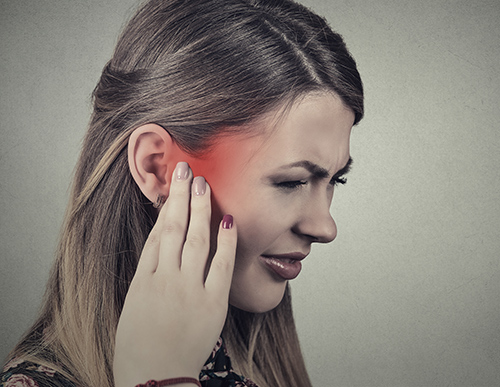
Do you hear that ringing in your ears and wonder where it comes from? You’re not alone. It is estimated by the Hearing Health Foundation that 20 percent of Americans hear that same ringing sound, or ones similar to it, each day. Only around 16 percent of those with tinnitus will discuss the problem with a physician even though it disrupts their lives. Of that 20 percent, 90 percent of them also live with hearing loss even if they realize it. It is a growing concern throughout the country, but what does all the noise mean?
About Tinnitus?
Tinnitus is the medical name for the phantom sound in your ears. There is no one source for this noise – it’s actually a symptom of another problem, one usually associated with loss of hearing.
Tinnitus is more of a sensation than an actual sound, too. This is why no one else hears the noise that’s keeping you awake at night. There are no sound waves causes this phenomenon, instead, it relates directly to tiny hairs inside the inner ear that produce an electrical signal telling the brain there is a sound. These cells are misfiring, sending random electrical impulses not based on any true noise.
There is More to Tinnitus Than Just Ringing
Tinnitus is usually described as a high-pitched ringing, but not everyone hears the same thing. Some report:
- Buzzing
- Roaring
- Clicking
- Hissing
Others say it sounds like you are pressing your ear up against a seashell to hear the waves. The diversity of sounds is one thing that makes this condition confusing, especially for some who fails to get medical treatment or a hearing test.
What Causes Tinnitus?
Tinnitus is simply a mechanical breakdown of a critical part of the human ear but what is behind this breakdown? For most people, the answer is presbycusis, a form of hearing loss related to aging. Presbycusis is degenerative, so it tends to get worse as the person gets older. Other potential illnesses that present with tinnitus include:
- Loud sounds – It might be a one-time bang or something that is a day to day problem like machinery, earphones or exposure to loud music
- A build up of earwax – Earwax in the ear canal block sound waves interfering with your hearing
- Ear bone growth – This is a genetic problem that changes the bones in the ear
There are other possibilities, although they are rare, such as Ménière’s disease, which refers to increased pressure inside the ear. Jaw problems may be a source of the ringing, as well. For some, the noise is a consequence of a head injury that damaged the nerves in the ear. It might also be a sign of high blood pressure, a rare tumor in the ear or a side effect of a medication.
What Can You Do About Tinnitus?
First, make an appointment for a hearing test and ear examination to figure out the cause of the ringing. Once you treat the underlying hearing loss with something like a hearing aid, the ringing may resolve over time. Tinnitus is usually a sign of hearing loss that may be affecting your life in other ways, too, like isolating you during conversations or leaving you feeling like you are missing things. Once you identify your hearing loss, then getting hearing aids increases real sounds so the phantom ones are less of an issue.
There are other things you can do at home, too, to help deal with what can be an annoying and distracting problem. White noise machines produce environmental sounds that sooth your mind, especially if tinnitus is keeping you awake. You can fall asleep listening to the rain, for example, instead of that buzzing in your head.
You can create your own background noise, too, to deflect some of the tinnitus chaos. A fan blowing in the room might help or a humidifier – anything that produces a soft, but persistent sound to keep the hair cells in the ear busy so they don’t misfire.
It’s important to remember, though, that the ringing is trying to tell you something. Most likely the message is about hearing loss, so it’s worth a trip to the doctor to get a hearing test and find out more about your ear health.